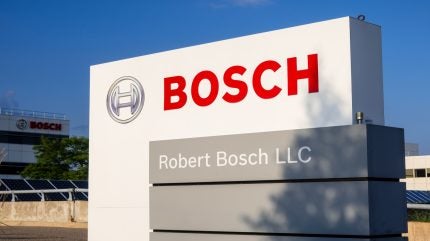
Bosch is set to expand its operations in Hungary with an investment aimed at producing electric steering gear, reported Hungary today.
The project, valued at Ft46bn ($117m), is bolstered by a Ft10.5bn ($27m) state investment and is anticipated to drive job creation in Heves County.

Discover B2B Marketing That Performs
Combine business intelligence and editorial excellence to reach engaged professionals across 36 leading media platforms.
This move aligns with Hungary’s strategic goals and reinforces its position as a key player in the global automotive industry, the report noted.
Hungary’s automotive sector is poised for a substantial boost, with Bosch’s new plant contributing to the country’s economic growth.
Hungary minister of foreign affairs and trade Peter Szijjarto said: “Another guarantee that next year we will be able to achieve tangible and visible economic growth.”
The country has become a hub for automotive manufacturing, with all three major German car brands operating factories in Hungary.
Over the past decade, the automotive sector’s production value has increased 3.5 times, with over 500,000 cars produced in 2023, the report said.
The expansion continues with the construction of new factories by Mercedes, BMW, and BYD.
Bosch operates three factories in Heves County, employing over 18,000 people, making it one of Hungary’s largest industrial employers.
Robert Bosch automotive steering managing director Michael Zink highlighted the new 37,000m2 multifunctional building as part of continuous investments at the Maklar production base since 2021.
These investments include the installation of production lines and the purchase of plant equipment, in addition to the construction work.
The Bosch investment is in line with Hungary’s strategic objectives to boost exports, increase added value, and promote environmental sustainability.
Despite economic challenges in Europe, Hungary’s automotive sector has flourished, positioning itself at the forefront of the transition to electric vehicles.
The sector’s growth is further supported by the strengthening partnership with German companies, with a record trade turnover of €70bn in 2023.






